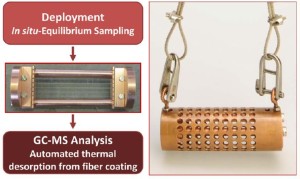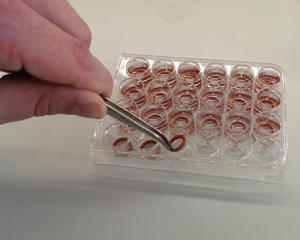Environmental Analysis – Teaching and Research at the Department of Environmental Engineering

Working group of the teaching and research area environmental analytics
The field of environmental analysis is a branch of chemical analysis. The study areas include the environmental compartments air, water, soil and organisms. If the students study environmental risk assessment at the HAW, they gain knowledge and insights into the investigation of pollutants in different environmental compartments and carry out risk analyzes. Evaluating the results and drawing the right conclusions from them in order to be able to act effectively and efficiently and to protect the environment is a prominent topic in research, study and teaching.
Which are our main subjects?
- Trace analysis of organic pollutants (PAH, PCB, PCDD / F, PBDE) using SPME Solid Phase Micro Extraction in different environmental compartments (water, sediment, biota)
- Direct measurement of the bioavailability by GC MS with thermal desorption of the pollutants from the PDMS fiber by means of gas chromatography and mass spectroscopy (GC-MS) without time-consuming sample “clean up”
- Development, calibration and evaluation of passive and equilibrium collectors for the analytical in-situ measurement of polar and non-polar organic trace substances in seawater and sediment (chemical activity and fugacity measurements)



